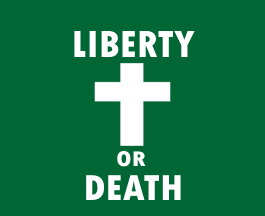
 Rebellion! Ireland fights back
Rebellion! Ireland fights back
Having seen the success the French had had in 1789, Irish Catholics banded together with Presbyterians from Ulster to form a society they called the United Irishmen, to try to force reform and fair treatment for all. The recent American War of Independence, and the triumph of George Washington’s fledgling colony over the might of the British Empire, was also fresh in their minds. Having sent a declaration to the French people on the second anniversary of the taking of the Bastille which read
"As Irishmen, We too have a country, and we hold it very dear—so dear... that we wish all Civil and Religious Intolerance annihilated in this land,” the Irish were honoured in turn by the Revolution on Bastille Day the following year with the French National Assembly hailing the soldiers of the new republic as "the advance guard of the world".
 William Drennan (1754 - 1820)
William Drennan (1754 - 1820)
The man who proposed the United Irishmen was a physician, a poet and a radical democrat. Born a Presbyterian in Belfast, he moved to Dublin in 1789 and got involved first with the Volunteers, and then helped create the United Irishmen, seeing Britain’s embarrassing defeat by the Americans as the perfect time to force Ireland’s agenda. He suggested the society as a “benevolent conspiracy, a plot for the people” and contended its true aim would be “Real independence to Ireland and Republicanism.” The United Irishmen would push for total emancipation for Catholics and proper representation for all peoples in the Parliament.
When he was arrested in May 1793 however, accused of sedition and consorting with French spies, though acquitted and having called all Irish men to stand to arms, he seems to have been abandoned by his fellows, and moved to Scotland, and while there worried that the course the French Revolution was taking, as Catholicism - indeed, all religions - were being trodden on and denounced by the Assembly, might turn Irish people (especially Catholics, known to be always devout to their religion) from these possible allies. The bloody and often indiscriminate violence that followed the
coup d’etat didn’t seem to give him such a problem.
 Theobald Wolfe Tone (1763 - 1798)
Theobald Wolfe Tone (1763 - 1798)
Known forever after in Irish history only as Wolfe Tone, he would go on to be one of the great heroes of, and martyrs to Irish independence. Although a Protestant (and an Anglican at that) he was forward-thinking enough and had enough patriotic fervour to reach across the sectarian divide and suggest that
all Irish people, of
all faiths and religions work together for the true independence of Ireland. He abhorred Grattan’s acceptance of the Constitution of 1782, believing it was a compromise, and his insistence on Ireland remaining tied to the Crown. Wolfe Tone proposed full and free autonomy for his native land, and to this end helped create the United Irishmen with William Drennan.
Despairing, however, of any chance of acceptance by the Irish Parliament, which was still controlled by Protestants, Tone set his sights on France, and when the Reverend William Jackson, an Irish priest who had been exiled to France, arrived to scope out Ireland as a possible invasion target from which to harry the English, Tone received him enthusiastically, telling him Ireland was ripe for revolution. Unfortunately, the bishop was betrayed and, having been arrested for treason, killed himself by taking poison and collapsing during his trial. Before fleeing to America, Tone met with other United Irishmen and together they swore
“never to desist in our efforts until we had subverted the authority of England over our country, and asserted our independence." Tone spent only a year in America, thoroughly disenchanted with the place before making his way to France, where he requested a French invasion of Ireland. There too he recorded his philosophy of independence for his native country, words which would later appear on his tomb:
"Our independence must be had at all hazards. If the men of property will not support us, they must fall; we can support ourselves by the aid of that numerous and respectable class of the community, the men of no property"
The invasion was agreed, and he accompanied an expedition at the close of 1796 which was sent to support the coming Irish revolution, but weather off Bantry Bay made it impossible for the French vessels to land, and they were forced to return home. He tried again - with both the French and the Dutch (Batavia) - and finally managed to land in Ireland in September of 1798, but his fleet was defeated by the British, he was taken prisoner, put on trial, and committed suicide rather than wait for an answer to his request that he be shot.
The bloody massacres in Paris of 1792 added fuel to a panicky fire among Protestants that should Catholics gain power they would act in a similar manner, savagely taking retribution on their oppressors. However the French Republic’s move away from the respect for and authority of the Pope alienated them from the Irish Catholics, who deplored the capture of Pius VI under Napoleon, his imprisonment and later death. On the one hand, you’d have to imagine that George III, traditionally an enemy of Rome since Henry VIII’s time, might have welcomed the news of the old pope’s death, but on the other, he certainly didn’t like the idea of the new French Republic extending their revolution to Italy and claiming it, too, a republic. So the last thing he wanted was an Irish revolution to go with it.
But that’s exactly what he got.